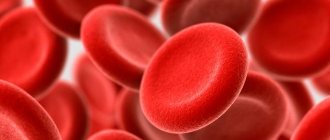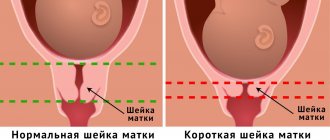General information
Human chorionic gonadotropin (abbreviated hCG, hGT, HCG in English, HGL in Ukrainian) is a hormone that, in the normal state of the body, is produced exclusively during pregnancy. The hCG hormone is produced after conception - it is synthesized by the fertilized egg, and after the trophoblast (this is the precursor of the placenta), this hormone is produced by its tissues.
That is why the level of hCG is determined only after conception. Human chorionic gonadotropin consists of two different subunits - alpha and beta . Moreover, alpha is identical to the alpha subunits of pituitary . When we talk about hCG - what it is, its B-subunit is considered. It is important to understand when considering what beta hCG is that it is a unique subunit, so it cannot be confused with other hormones. When talking about testing for human chorionic gonadotropin, we mean that there is no difference between hCG and beta-hCG.
What is hCG during pregnancy? Its definition and decoding is a very important stage in the diagnosis of a number of pathologies of both the fetus and the woman. In some conditions that will be described in this article, hCG values are either greatly reduced or increased. When considering what kind of analysis this is, you need to take into account that with small deviations from the norm, this study has no diagnostic value. Therefore, some diseases and conditions of the expectant mother ( term pregnancy , intrauterine infection, chronic placental insufficiency ) are determined using other methods.
After the hCG results have been received, they are interpreted over time, since each woman’s hCG level changes differently during pregnancy. Therefore, one result cannot judge the situation as a whole.
It is important that the result of the hCG pregnancy test be reviewed by a qualified specialist. After all, decoding the hCG test is very important, as it allows you to correct some problems in fetal development.
Since the free beta subunit of gonadotropin is unique, the test that determines the norm of hCG during pregnancy is also called beta-hCG. The norm is if during pregnancy HCGb appears in the blood a few days after conception. But, nevertheless, if, for example, hCG is 8, what does this mean cannot be definitely said after the first analysis. A repeat test will be needed to confirm pregnancy. In general, the fb-HCG norm is a very important indicator of fetal development.
When taking hCG at Invitro, Hemotest, Helix and other clinics, a woman needs to understand what this indicator is, when such a test will show pregnancy, etc. This will be discussed in the article below.
What is hCG used for?
When determining HCGb levels, you need to understand what human gonadotropin is needed for. Wikipedia states the following:
- this hormone at the beginning of pregnancy stimulates the process of synthesis of estrogen and progesterone ;
- prevents the disappearance of the corpus luteum ;
- prevents aggression immune system against fetal cells;
- initiates physiological and anatomical changes in the pregnant woman’s body;
- stimulates the adrenal glands and gonads of the fetus;
- participates in the process of sexual differentiation in male fetuses.
Why is this test prescribed?
The analysis is prescribed to women for the purpose of:
- early diagnosis of pregnancy;
- monitoring the dynamics of how pregnancy progresses;
- determination of developmental defects (fetal anatomy);
- exclusion of the development of ectopic pregnancy ;
- the need to assess whether the induced abortion ;
- establishing that there is a threat of miscarriage ;
- diagnosis of amenorrhea and tumors .
For male patients, such analysis is necessary to diagnose testicular tumors .
Is there anything that can be done to bring the hCG back to normal?
Sometimes hCG is not the cause, but an indicator that the pregnancy is not going as expected. Therefore, you will have to deal directly with the cause - genetic disorders, placental insufficiency, threat of miscarriage.
Is it possible to raise human chorionic gonadotropin? Synthetic steroid hormones increase its levels, but can harm the child. Because the interaction of one or another amount of hormones may not be calculated, as a result the hormone will be greatly increased and threaten pregnancy.
Is human chorionic gonadotropin lowered artificially? Doctors never carry out the demotion procedure. Because if, with an increase in the hormone, there is a threat of fetal rejection (immune cells will begin to actively work again) or problems arise with the placenta and uterus (the hormone prepares them for the birth of a child - it expands, increases blood flow), then a decrease says something else.
HCG levels during pregnancy
The function of human chorionic gonadotropin in the body is very important. Its indicators begin to increase in the early stages, as it is produced by a fertilized egg. It is hCG that makes it possible for pregnancy to develop, since it triggers all the processes necessary for bearing a baby.
Already 9 days after ovulation, hCG can be detected in the blood plasma. That is, already when the fertilized egg has penetrated the endometrium, there is a slow increase in the levels of this hormone. And if its low level is determined in the early stages, then the concentration doubles every two days. What exactly its level should be in a certain week, how hCG should grow, whether slow or fast growth is noted, can be found out from the corresponding tables.
The increase in hCG during pregnancy occurs until 8-10 weeks from the last menstruation, when its peak is noted - 50,000-10,000 IU/l. Then the hormone level begins to decrease, by 18-20 weeks it is already reduced by half. Then the hCG level remains stable throughout the entire pregnancy.
During pregnancy, gonadotropin is excreted from the body by the kidneys, and therefore is excreted in the urine. It can be determined by performing a urine test in the range of 30-60 days after the last menstruation. The highest rates are observed on days 60-70. This is why, when hCG begins to be produced, you can do a pregnancy test strip or other urine tests.
HCG levels during late pregnancy may reach repeated peak levels. Previously, doctors considered this to be normal. However, it has now been proven that elevated hCG in later stages may indicate developmental pathology. In particular, a high level of the hormone in the last weeks of gestation sometimes means that there is a reaction of the placenta to placental insufficiency in the event of Rh conflict .
After childbirth an abortion was performed , after 7 days, hCG in urine and plasma, as a rule, can no longer be determined. Although before considering the possibility of trophoblastic disease , they wait a certain period of time - 42 days.
The correct table of hCG levels by days from conception makes it possible to see what the concentration of the hormone should be in a certain period, to track hCG norms by days from conception after growth has begun after egg implantation. Since during pregnancy the level of human chorionic gonadotropin is very important for monitoring the correct development of the baby, a woman who checks the table and sees how hCG grows day by day can independently verify that everything is going fine. However, when tracking growth by day using the table, it should be borne in mind that the numbers in it are not a standard. After all, each laboratory can set its own standards, which it is advisable to rely on when analyzing the data obtained.
Laboratories also conduct tests for the growth of hCG in urine after ovulation, monitoring the situation after IVF. By analyzing how the hormone level increases, we can judge the success of IVF.
Currently, a hCG table is used, in which during pregnancy you can navigate week by week, tracking whether a certain deviation occurs, and consult a doctor on time. The graph of changes in this indicator by week is convenient for assessing test results.
The hCG table for obstetric weeks for twins displays the normal level of human gonadotropin (reference values) for multiple pregnancies.
HCG table
| Term | Average value (mIU/ml) | Acceptable limits (mIU/ml) |
| 2 n. | 150 | 50-300 |
| 3-4 n. | 2000 | 1500-5000 |
| 4-5 n. | 20000 | 10000-30000 |
| 5-6 n. | 50000 | 20000-100000 |
| 6-7 n. | 100000 | 50000-200000 |
| 7-8 n. | 80000 | 40000-200000 |
| 8-9 n. | 70000 | 35000-145000 |
| 9-10 n. | 65000 | 32500-130000 |
| 10-11 n. | 60000 | 30000-120000 |
| 11-12 n. | 55000 | 27500-110000 |
| 13-14 n. | 50000 | 25000-100000 |
| 15-16 n. | 40000 | 20000-80000 |
| 17-20 n. | 30000 | 15000-60000 |
Using the table and comparing the results obtained, it should be taken into account that the hCG level has great variability. So, at 2 weeks it can be either 100, 250 or 300 mIU/ml, since at this time the hormone is produced very quickly.
The level at week 3 can be 500, 600, or 900 mIU/ml, and by week 4 hCG gradually reaches 1600, 2500, 2800, 3000, 4000, 5000 mIU/ml. In the period from 4 to 5 weeks, the hormone levels are 6000, 7000, 8000, 9000 and higher - an intensive increase in hCG levels continues. Further growth continues, reaching 12,000, 13,000, 17,000 mIU/ml and higher. It should be noted that already from 8 weeks. There is a gradual decline in hormone levels.
There is also a special hCG table for IVF, which allows you to monitor immediately after IVF, during embryo transfer, whether the concentration of the hormone is normal. Thanks to this table, the dynamics of IVF are monitored.
| Embryo age | Three-day DPP | DPP five days | hCG minimum | hCG average | hCG is the greatest |
| 7 days | 4 | 2 | 2 | 4 | 10 |
| 8 days | 5 | 3 | 3 | 7 | 18 |
| 9 days | 6 | 4 | 3 | 11 | 18 |
| 10 days | 7 | 5 | 8 | 18 | 26 |
| 11 days | 8 | 6 | 11 | 28 | 45 |
| 12 days | 9 | 7 | 17 | 45 | 65 |
| 13 days | 10 | 8 | 22 | 73 | 105 |
| 14 days | 11 | 9 | 29 | 105 | 170 |
| 15 days | 12 | 10 | 39 | 160 | 270 |
| 16 days | 13 | 11 | 68 | 260 | 400 |
| 17 days | 14 | 12 | 120 | 410 | 580 |
| 18 days | 15 | 13 | 220 | 650 | 840 |
| 19 days | 16 | 14 | 370 | 980 | 1200 |
| 20 days | 17 | 15 | 520 | 1380 | 2000 |
| 21 days | 18 | 16 | 750 | 1960 | 3100 |
| 22 days | 19 | 17 | 1050 | 2680 | 4900 |
| 23 days | 20 | 18 | 1400 | 3550 | 6200 |
| 24 days | 21 | 19 | 1830 | 4650 | 7800 |
| 25 days | 22 | 20 | 2400 | 6150 | 9800 |
| 26 days | 23 | 21 | 4200 | 8160 | 15600 |
| 27 days | 24 | 22 | 5400 | 10200 | 19500 |
| 28 days | 25 | 23 | 7100 | 11300 | 27300 |
| 29 days | 26 | 24 | 8800 | 13600 | 33000 |
| 30 days | 27 | 25 | 10500 | 16500 | 40000 |
MoM is the ratio of hCG to the average value. In a normal pregnancy, this figure is 0.5-2.
Determination of human chorionic gonadotropin is very important for quality monitoring of the health of mother and baby. Also, if necessary, a progesterone test and other studies are performed. But it is the hCG level by week of pregnancy that makes it possible to monitor indicators and timely note deviations from the norm. A table of hCG norms by week of pregnancy is a convenient tool for a woman who can find out what the level of the hormone should be when she is in the 5th week, 6th week, 7th week of pregnancy, etc. However, the test results should be assessed by a doctor, since only a specialist can understand how they meet the norm. The gynecologist can note the appropriate level of hCG for ectopic pregnancy week by week and, after assessing the results, act in a timely manner.
To confirm pregnancy, it is important to obtain accurate results, for which the test is carried out on a certain day after ovulation (DPO). So, if in the end we get hCG 14, then it’s too early to talk about pregnancy, but the appearance of hCG 25 and higher (for example, a value of 65), we can talk about conception.
Normally, in non-pregnant women, as well as in men, the level ranges from hCG 0 to hCG 5. That is, a variant of the norm if a woman has a hormone level of less than 1, 1, 1.2, as well as hCG 2 or hCG 3.
If the result is in the range from 5 to 25, the doctor prescribes a repeat test a few days later, since hCG 7 or hCG 10 indicators require either confirmation or denial of pregnancy. Therefore, the doctor, noting, for example, hCG 6 or hCG 12, prescribes another test after 2-3 days.
The so-called biochemical pregnancy, which always ends in miscarriage when the next period occurs at the beginning of the cycle, leads to a slight increase in hormone levels in those who conceive.
Beta-hCG levels at different stages of pregnancy
| Days after last menstruation | Gestation period (days/weeks) | HCG in honey/ml |
| 26 | 12 | 0-50 |
| 27 | 13 | 25-100 |
| 28 | 14 (2 weeks) | 50-100 |
| 29 | 15 | 100-200 |
| 30 | 16 | 200-400 |
| 31 | 17 | 400-1000 |
| 32 | 18 | 1050-3000 |
| 33 | 19 | 1450-4000 |
| 34 | 20 | 1940-5000 |
| 35 | 21 (3 weeks) | 2600-6500 |
| 36 | 22 | 3400-8500 |
| 37 | 23 | 4400-10800 |
| 38 | 24 | 5700-13700 |
| 39 | 25 | 7200-17000 |
| 40 | 26 | 9000-21000 |
| 41 | 27 | 10100-23300 |
| 42 | 28 (4 weeks) | 11200-2550 |
| 43 | 29 | 13700-30900 |
| 44 | 30 | 16600-36500 |
| 45 | 31 | 19900-43000 |
| 46 | 32 | 25500-50200 |
| 47 | 33 | 27450-57650 |
| 48 | 34 | 31700-65400 |
| 49 | 35 (5 weeks) | 36100-73200 |
| 50 | 36 | 40700-81150 |
| 51 | 37 | 45300-88800 |
| 52 | 38 | 49800-96000 |
| 53 | 39 | 54100-102500 |
| 54 | 40 | 58200-108200 |
| 55 | 41 | 61640-112800 |
| 56 | 42 (6 weeks) | 64000-116310 |
How to carry out the analysis?
What does a hCG test look like? To determine beta-hCG, you need to donate blood. When determining total b-hCG, it is advisable to take tests in the morning, before meals. To determine free beta-hCG, the rate of which during pregnancy depends on the period, you should take tests no earlier than the 5th day after your missed period.
If the beta hCG level during a certain period of pregnancy does not correspond to the result obtained, the analysis must be repeated a few days later. The decryption of the received data is carried out by a specialist. You can also learn from him how to convert units of measurement.
You should know when donating blood for hCG that this hormone is also detected in amniotic fluid and urine. Those who are interested in where blood is taken for hCG during pregnancy need to know that to carry out the analysis it is necessary to donate blood from a vein. When to donate blood depends on your doctor's recommendations. An analysis for free hCG to identify pathologies is carried out at 14-18 weeks. How long to wait for the result depends on the clinic. As a rule, there is no need to wait long: the woman receives results within a day. When a blood test for hCG shows pregnancy, you should definitely follow all the recommendations of the gynecologist observing the woman.
How much an hCG test costs depends on the clinic where it is performed. If a woman is interested in the price, you can find out how much a blood test costs by visiting the clinic’s website or calling them.
Often, some thematic forum contains posts on the topic “hCG is negative, resulting in pregnancy.” This situation, as a rule, indicates that the ovulation calendar was incorrectly calculated and, accordingly, the analysis was not taken on time. You can take the test a couple of days after the delay. If you take it at 13 DPO, you can get a clear result indicating pregnancy.
What is hCG - “beta”?
The content of the article
HCG is a hormone that is produced by the fetus itself, or rather by the fetal membrane of the embryo (chorion). The process begins immediately when the embryo is implanted into the uterus. At this moment, the fetus still looks like a small bubble of liquid, consisting of an embryoblast (from which the fetus will form in the future) and trophoblast (cells that form the chorion).
Under the influence of gonadotropin, the corpus luteum produces hormones that maintain the condition of the endometrium (the inner lining of the uterus) necessary for normal pregnancy. An increase in hCG concentration indicates that fertilization has taken place.
HCG contains:
- Alpha subunits. They are not determined because they have no diagnostic value during pregnancy.
- Beta subunits, which make it possible to determine the fact of conception and the period of fetal development.
That is why the term human chorionic gonadotropin in pregnancy tests refers to its beta component.
Reasons for increasing hCG
You can find out how hCG should grow during pregnancy from the table. But there are a number of factors that provoke an increase in human gonadotropin. This occurs when the following occurs:
- Multiple pregnancy (if twins or more children are expected).
- Developmental defects of the unborn baby and the presence of chromosomal abnormalities .
- Diabetes.
- The use of human chorionic gonadotropin for treatment.
- Trophoblastic tumors.
Reasons for low hCG
- Ectopic pregnancy.
- Fetal death antenatal.
- Threatened abortion , frozen pregnancy .
- Manifestation of certain chromosomal abnormalities .
Low hCG during pregnancy is a reason for urgent consultation with a doctor. Those who have low hCG after IVF should not look for examples and stories about similar situations. If this indicator is very low after IVF, additional research and medical assistance are required.
HCG as a marker of fetal abnormalities
The hCG test is one of the stages of prenatal screening . This is a basic method of prenatal diagnosis.
After her period does not come on the expected day, the woman has taken a pregnancy test and it turned out to be positive, or has taken a blood test for pregnancy in the early stages, the question becomes relevant for her when she can take all the tests. To monitor the development of the child, a pregnant woman needs to undergo screening in the first trimester. This process involves assessing the information obtained by ultrasound, as well as the level of hormones, including human chorionic gonadotropin. At the very first ultrasound, the yolk sac is examined to ensure proper placement of the embryo.
The doctor explains when to do such an analysis and how to take it correctly during a scheduled appointment.
- In the first trimester, around 10-14 weeks, two biochemical markers are tested: hCG and PAPP-A (this is plasma protein A, associated with pregnancy).
- In the second trimester, around 16-18 weeks, a double test is done: AFP (alphafetoprotein), estriol-A and hCG.
The data obtained, as well as the results of ultrasound, make it possible to determine the risks of developmental defects, as well as chromosomal abnormalities in the baby. The doctor must take into account the weight and age of the mother, her state of health, the size of the fetus, as well as the health of the already born children.
At the beginning of pregnancy, a woman has a large number of questions about conducting research - on what day to take the test, how to take it over time, how long the test is done, etc. All of them must be asked to the gynecologist.
By the way, researchers in the nineties of the last century found that mothers who bear children suffering from Down syndrome have hCG levels in their blood that are twice as high or more. There is still no precise explanation of the mechanism for increasing the hormone, but this indicator is the most sensitive marker for trisomy 21 chromosomes.
The doctor also prescribes an ultrasound, during which a number of parameters are assessed - BPR , fetal CTE , etc. On an ultrasound at 11 weeks, the absence of visualization of the fetal nasal bone may indicate Down's disease. Ultrasound readings at 20 weeks make it possible to assess important parameters - fetal growth, body weight, diameter of the ovum, etc. and make sure that the child is developing normally.
A special table will help you estimate the size of the fertilized egg by week of pregnancy.
What fetal anomalies cause changes in hCG levels?
The level of this hormone may change in the following diseases and conditions:
- Down syndrome. In this situation, there is an increased hCG and at the same time low levels of other markers.
- Patau , Edwards (low hCG and other markers).
- Turner syndrome (hCG unchanged, other markers below).
- Serious fetal heart and neural tube defects.
If there is a high risk of developing abnormalities, the doctor may recommend additional tests and examinations. Invasive diagnostics provide highly accurate results . In addition, taking into account the duration of pregnancy, other research methods are used:
- amniocentesis;
- chorionic villus biopsy;
- cordocentesis.
If the screening shows unsatisfactory results, it is important to consult with a geneticist and find out what to do next.
Sometimes, for example, with multiple pregnancies , screening is very difficult or impossible. In this case, hCG increases in proportion to the number of fetuses that develop. However, it is very difficult to calculate the risk for each child individually.
How pregnancy develops at 18 weeks: hCG levels
Eighteen-week human chorionic gonadotropin levels range from 4000 to 165,000 mU/ml. A drop in the amount of this substance does not always indicate pathologies at this stage. Some expectant mothers have downward deviations and still give birth to a healthy baby without a caesarean section. But if the indicator begins to increase significantly, it is urgent to undergo a comprehensive diagnosis and, if deviations are detected, take appropriate measures.
If you were suddenly asked by your obstetrician-gynecologist to donate blood for this hormone, don’t worry. In the middle of pregnancy, the doctor must make sure that everything is fine with the child and there are no abnormalities. In addition, obtaining information about the state of the body of the expectant mother and child helps to decide what method to give birth, whether it will be difficult or normal.
HCG level during ectopic pregnancy
In a woman with an ectopic pregnancy, the fertilized egg attaches not in the inner layer of the uterus, but in any other place. As a rule, this occurs in the fallopian tubes, less often in the ovaries, uterus, and intestines. This is a dangerous condition, since such a pregnancy is usually terminated. This situation is very dangerous, as the woman can die from serious internal bleeding that is difficult to stop.
However, modern doctors can make this diagnosis in time and take all the necessary measures. This is an ultrasound and a blood test for hCG. Since during an ectopic (ectopic) pregnancy there are very difficult conditions for the attachment of the egg, there are certain features of how human chorionic gonadotropin grows and what its level is determined.
Does hCG increase during an ectopic pregnancy? HCG indicators during ectopic pregnancy grow slowly and do not correspond to the indicators indicated in the tables. It is necessary to monitor this indicator, since with its very slow growth, it is important to conduct an ultrasound using a vaginal sensor to detect the fertilized egg in the uterus or outside the uterus. This is possible if the hCG level is from 1000 IU/l. If the embryo is not detected at the specified level of the hormone, it is necessary to perform laparoscopic surgery and search for the fertilized egg.
What are the signs of an ectopic pregnancy?
- Abdominal pain after missed period.
- Feeling of pain during sexual intercourse and vaginal examinations.
- Bloody discharge (sometimes).
- Fainting during the delay period.
If any or more of these signs appear, it is important to see a doctor to determine the cause. To exclude ectopic pregnancy, hCG analysis and ultrasound are performed.
When is the analysis due?
The first signs of an interesting situation in a woman appear at the moment when hCG begins to increase during pregnancy. The fertilized egg begins to divide, after which it enters the uterine cavity and attaches there.
It is from this moment that the level of the hormone begins to constantly double, which is clearly visible in the results of blood tests.
As a rule, doctors recommend taking the test on the first day of missed menstruation, since it is during this period that the hCG level reaches 20-25 mU.
You can notice an increase in indicators earlier; already 7-10 days after ovulation they begin to grow, doubling every 24-48 hours.
However, readings below 25 mU are often not accepted by doctors as a guaranteed confirmation of pregnancy, so it is still recommended to wait for a delay.
In the first trimester, the analysis can be taken several times if it is necessary to monitor the dynamics of embryo development and there is a possibility of a frozen pregnancy.
After 15 weeks, determination of the hCG level is rarely required, so such an analysis is practically not carried out for a long period.
Frozen pregnancy
It happens that after pregnancy is confirmed, signs of pregnancy either suddenly stop or do not occur at all. In this case, the embryo dies, but for certain reasons a miscarriage does not occur. The answer to the question of whether hCG increases during a frozen pregnancy is negative. After all, hCG is not produced during a frozen pregnancy, so it stops growing. Then it decreases. An ultrasound reveals an embryo without a heartbeat or an empty fertilized egg.
Pregnancy may stall due to such reasons
- Chromosomal abnormalities (mostly pregnancy stalls at up to 10 weeks).
- Infectious diseases of the mother (very often this occurs due to chronic endometritis ).
- Anatomical abnormalities of the uterus.
- Violation of the blood clotting process ( thrombophilia ).
If, after the pregnancy has frozen, a miscarriage does not occur, an abortion or curettage should be performed. In the event that freezing occurs two or more times, the couple needs to undergo an examination to determine why this is happening and whether the man or woman has certain abnormalities.
Fetal death at a later stage is called antenatal . At the same time, the level of hCG also decreases, although this is not diagnostically important, since it is not measured in the later stages.
HCG in anembryonics (a pathology in which pregnancy stops before 5 weeks, when the fertilized egg has formed) can either increase or remain the same.
Trophoblastic tumors
Also, the dynamics of VHCG makes it possible to diagnose trophoblastic tumors .
Partial and complete hydatidiform mole
If the pregnancy develops normally, then after the fusion of the sperm and egg, a zygote is formed, which contains the genetic information of the father and mother. But in some cases, a kind of expulsion of the chromosomes of the egg from the fertilized egg occurs. In this case, the woman develops a condition similar to pregnancy, but only the father's genetic material is involved. This phenomenon is defined as a complete hydatidiform mole .
If there is a partial hydatidiform mole , then the information of the egg remains, but the information of the sperm is doubled.
Both during the normal course of pregnancy and during hydatidiform mole, the father’s chromosomes determine the formation of the placenta and trophoblast. If these chromosomes double, then the trophoblast develops very quickly, and a very large amount of hormones begins to be released into the blood, including human gonadotropin. The diagnosis of this disease is based on this.
If a woman has a hydatidiform mole, the pregnancy cannot develop normally. spontaneous abortion occurs . However, the greatest danger of this condition is that the hyperactive trophoblast gradually invades the uterus, then beyond it and, as a consequence, then the formation of a tumor with metastases .
Therefore, it is necessary to promptly identify this disease and carry out treatment.
The main signs of hydatidiform mole are:
- Constant, uncontrollable vomiting , much more painful than with ordinary toxicosis .
- Uterine bleeding (severe spotting) in the early stages.
- The size of the uterus is larger than normal at this stage.
- Symptoms of preeclampsia (sometimes).
- Trembling fingers, palpitations, weight loss (rare).
When the signs described above are noted, it is important to consult a gynecologist, undergo an ultrasound and be tested for hCG.
If pregnancy develops normally, then the level of this hormone rarely increases above 500,000 IU/l. There is an approximate calculation of hormone norms for each period. But if a hydatidiform mole develops, the hCG level is different, several times higher than these norms.
To cure a hydatidiform mole, all trophoblast must be removed from the uterus. To do this, curettage or other surgical interventions are performed.
It may happen that a benign hydatidiform mole turns into a malignant chorionic carcinoma . As a rule, metastases appear very quickly with this tumor. But it responds well to treatment with chemotherapy .
There are the following indications for chemotherapy:
- HCG level is above 20,000 IU/L one month after the hydatidiform mole was removed.
- An increase in the level of this hormone after a hydatidiform mole has been removed.
- Metastases to other organs.
Chorionic carcinoma
Chorionic carcinoma can appear both after hydatidiform mole and after childbirth or abortion. If a woman develops this disease, then 40 days after the pregnancy ends, the hCG level has not fallen, but has increased. Uterine bleeding may also be observed, signs that indicate metastases. In such a situation, there are indications for chemotherapy and surgery. In the future, the patient should remain under observation. The doctor decides how long it should last.
What hCG levels are considered normal in the table in the period from 6-8 weeks?
At week 6, the hormone grows with the same high progression. The baby’s heart is beating actively - this is a reason to be even more attentive to the test results.
What is considered normal at 6 weeks? 1110 – 31500 mU/ml in the blood is considered the limit for the normal course of pregnancy.
In what ranges should the hormone be at week 7? From 5000 to 20000 mU/ml.
Indications for hCG analysis at week 7:
- Suspicion of ectopic pregnancy;
- Threat of miscarriage - measures to maintain pregnancy, to monitor the condition of the body;
- Amenorrhea;
- Suspicion of neoplasms.
What does a deviation from the norm at this time indicate:
- On the development of genetic diseases;
- About intense toxicosis;
- About twins or triplets - multiple pregnancy;
- Improper fetal development;
- Possible miscarriage, pregnancy complication;
- Rupture of the placenta.
Normal at 8 weeks: 27,000 – 230,000 mU/ml in the blood.
Use of drugs containing human chorionic gonadotropin
Like all human hormones, human chorionic gonadotropin levels can depend on various factors. Thus, the test result is influenced by whether the woman takes medications containing human gonadotropin orally.
As a rule, such drugs are prescribed to women with infertility , as well as during the period when preparations are underway for IVF, in order to increase hormone levels.
In rare cases, such medications are taken if there is a threat of miscarriage. In any case, if a woman uses such medications, then before carrying out any measurements and tests, you need to warn the doctor about this.
Taking a variety of medications, many women are interested in whether they can affect the levels of this hormone. For example, people often ask whether Duphaston hCG levels. According to experts, Duphaston may have a slight effect on the level of this hormone, since this drug controls progesterone . However, if hCG does not meet the norm, this cannot be attributed to the influence of the drug, since it may be a pathological condition.
The level of this hormone is not affected by Utrozhestan .
Hormonal medications, the active component of which is human chorionic gonadotropin, are Profasi , Pregnil , Humegon , Horagon , Choriogonin , Menogon . They restore the ovulatory process and activate the hormonal activity of the corpus luteum. At what size of the follicle the injection is given is determined by the doctor.
Initially, studies are carried out on hormones, their norm in women and deviations. If certain abnormalities occur, in particular, progesterone is below normal, what this means, the doctor will explain during the consultation and prescribe specific treatment.
If necessary, to stimulate ovulation, hCG injections from 5000 to 10000 IU are prescribed, in order to maintain pregnancy - from 1000 to 3000 IU. Individual dose selection is important. Therefore, if the 10,000 injection was given, when is ovulation, if the 5,000 injection was given, how long after ovulation, the specialist will explain.
Currently, human chorionic gonadotropin is also used by athletes, since under its influence testosterone .
Where to get tested for hCG in St. Petersburg
You can get tested without queues and quickly get accurate results at the Diana Clinic in St. Petersburg. When deciphering, specialists take into account all factors that can affect the level of beta-hCG, which eliminates errors. Here you can consult with experienced gynecologists who will explain what to do in a given situation.
If you find an error, please select a piece of text and press Ctrl+Enter
False positive test result
Those who are interested in what stage of pregnancy a test for this hormone shows, should take into account that in some situations the tests can be false positive.
This happens in the following cases:
- Some experts say that when taking oral contraceptives, hormone levels may increase. However, there is no proven evidence that taking contraception affects hCG.
- As a rule, after childbirth or abortion, hormone levels decrease for seven days. In some cases, the doctor waits 42 days, after which tests are taken and he can make a diagnosis. If the analysis shows that hCG has not decreased or has increased, then we may be talking about a trophoblastic tumor.
- The level may remain elevated with the manifestation of metastases of chorionic carcinoma , hydatidiform mole .
- Other tumors can also develop from germinal tissues, but they rarely produce an increase in hormone levels. Therefore, if there is a formation in the brain, stomach, lungs and a high level of human chorionic gonadotropin, first of all, a suspicion of trophoblastic tumors with metastases arises.
Thus, the hCG level in non-pregnant women should not be higher than those that are normal. The normal level of hCG in non-pregnant women is from 0 to 5. The level of this hormone in a non-pregnant woman may be higher in the first days after an abortion, when taking certain medications, as well as with the development of certain pathological conditions.
Why is it worth monitoring hCG levels using a table?
Becoming a future mother requires a lot of attention and control on the part of a woman. Now difficult births, developmental anomalies, and genetic diseases can be identified already in the first or second semester.
The hCG level test is considered one of those that should be monitored.
HCG during pregnancy, weekly norm, table - why it is so necessary to monitor all this:
- Detection of pregnancy. At conception, a sharp jump in the hormone is observed, its amount increases 10 times. Its high level is observed not only in the blood, but also in the urine;
- Suspicion of a complication - ectopic pregnancy, threat of miscarriage and bleeding;
- Information regarding the healthy growth and development of the baby, the absence of pathologies.
What does a deficiency of human chorionic gonadotropin show in an expectant mother:
- Discrepancy between the current stage of pregnancy and the diagnosed one;
- Ectopic pregnancy;
- Stopping the development of the fetus, stopping its development;
- Threat of miscarriage and bleeding;
- Postmaturity of the fetus. The real deadline for the birth of a child has already passed, but this did not happen;
- Chronic placental insufficiency;
- Fetal death in mid-pregnancy;
- Threat of placental rupture.
What threatens a high level of human chorionic gonadotropin in a pregnant woman:
- He reports twins - the amount of the hormone increases along with the number of embryos;
- The difference between the correct gestational age and the predicted one;
- Toxicosis;
- The development of genetic diseases that are associated with the addition of an extra chromosome or the absence of a necessary pair. For example, the development of Down syndrome (disorder of the 21st pair of chromosomes);
- Signals the use of synthetic steroid hormones;
- Diabetes mellitus in a pregnant woman.
It is not advisable to immediately test for hCG levels; even laboratory tests will not show a positive result for pregnancy if less than 10 days have passed since the cessation of menstruation.
The level of the hormone in the blood/urine is determined by the weeks from conception.
Immunity against hCG
In rare cases (units), the female body produces antibodies to chorionic hormone. They are an obstacle to the normal attachment of a fertilized egg in the uterus and its subsequent development.
Therefore, if in two or more cases the pregnancy ended in spontaneous miscarriage, it is important to take a test to determine antibodies to hCG and find out if there are any certain abnormalities. If the result is positive, treatment is carried out during the first trimester.
The woman is prescribed glucocorticoids and low molecular weight heparins . However, it is important to consider that organisms producing antibodies to hCG are rare. Therefore, in the absence of pregnancy, you must initially undergo all tests and exclude the influence of other factors on women’s and men’s health.
Why do you need a test to determine hCG? And how to donate blood correctly
By taking a hormone test, a woman can find out about the results of her pregnancy after 5-6 days from the moment of conception. This is much more effective than conventional rapid tests.
This test will allow you to determine a more accurate date of conception. Quite often, the mother cannot accurately name the date of conception, or she names it, but it is incorrect. This is quite important, since the hearth development parameters correspond to a certain period. And deviations from the norm can become a signal of complications.
The test indicators make it possible to accurately determine the correct development of the child. A sharp increase in hCG levels indicates a multiple pregnancy, the presence of diseases in the mother or hereditary diseases in the baby. On the contrary, a decrease in level can be a signal of fetal fading and developmental delay.
To obtain a more reliable result, it is necessary to correctly take the hormone test. The doctor will tell you all the details. But we must not forget that tests are taken on an empty stomach. It is advisable to donate blood in the morning, but if this is not possible, you can donate during the day, provided that the woman has not eaten for about 4-6 hours. Blood is drawn from a vein.
It is advisable to avoid physical activity the day before the tests. If you use hormonal drugs, you should inform your doctor, as this affects the accuracy of the analysis.
If the test results are alarming, do not rush to panic. The doctor will be able to interpret them correctly. If necessary, he will schedule a repeat test.











